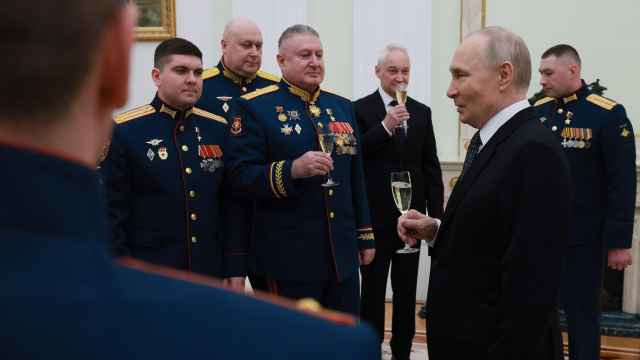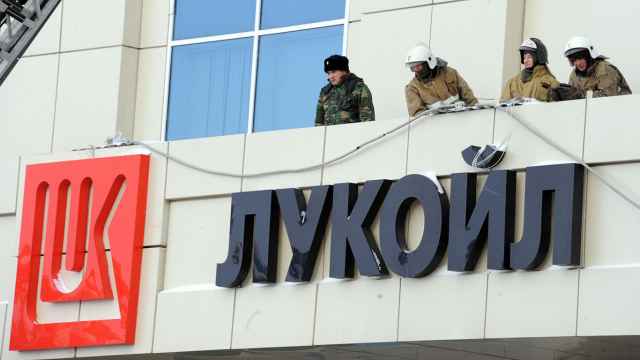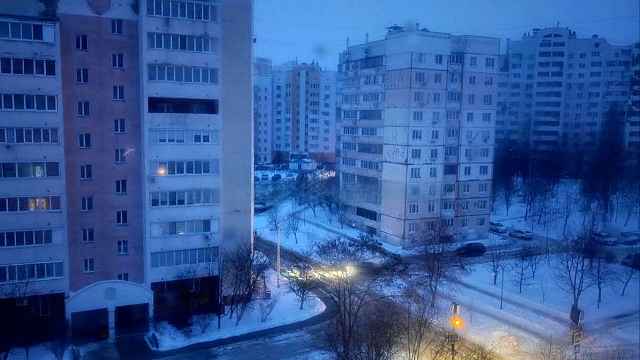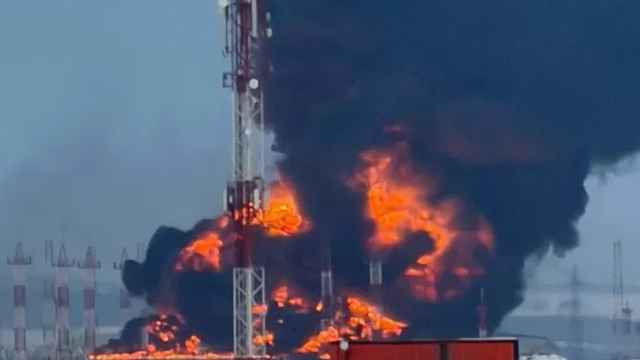The Russian parliament on Tuesday gave preliminary approval to an amnesty that could pardon jailed members of the punk band Pussy Riot, but the move appears to be a largely symbolic effort to placate critics before the showcase Winter Olympics in Sochi.
In the first of three votes, parliament voted unanimously in favor of the bill, a complicated piece of legislation that appears tailored to the band members and some other political prisoners — but that may pass only after the scheduled March release of the two band members still in jail.
In its current state, it would most likely not free the 30 crew members of a Greenpeace ship arrested after a protest in Arctic waters or most of the dozens of protesters arrested in the wake of massive protests last year against President Vladimir Putin.
Putin has been largely unyielding to Western criticism of his country's human rights records in the run-up to the games, defending an anti-gay law that has prompted calls for a boycott and overseeing a Kremlin crackdown on protesters. But the Kremlin is clearly sensitive about its international image ahead of the Sochi Olympics that start on Feb. 7. It may see the limited amnesty as a way to soothe Western discontent without disappointing Putin's conservative support base.
The amnesty extends to mothers, pregnant women, older people and soldiers who are sentenced to less than five years for nonviolent crimes, as well as those charged with "hooliganism" or "participation in mass riots."
Nadezhda Tolokonnikova and Maria Alyokhina, the Pussy Riot members serving two years on charges of hooliganism for an irreverent 2012 anti-Putin protest at Moscow’s main cathedral, both have children.
A separate article says anyone charged with “hooliganism” or “participation in mass riots” can be freed. But the law would not guarantee freedom to people who are awaiting or facing trial.
A Message from The Moscow Times:
Dear readers,
We are facing unprecedented challenges. Russia's Prosecutor General's Office has designated The Moscow Times as an "undesirable" organization, criminalizing our work and putting our staff at risk of prosecution. This follows our earlier unjust labeling as a "foreign agent."
These actions are direct attempts to silence independent journalism in Russia. The authorities claim our work "discredits the decisions of the Russian leadership." We see things differently: we strive to provide accurate, unbiased reporting on Russia.
We, the journalists of The Moscow Times, refuse to be silenced. But to continue our work, we need your help.
Your support, no matter how small, makes a world of difference. If you can, please support us monthly starting from just $2. It's quick to set up, and every contribution makes a significant impact.
By supporting The Moscow Times, you're defending open, independent journalism in the face of repression. Thank you for standing with us.
Remind me later.





